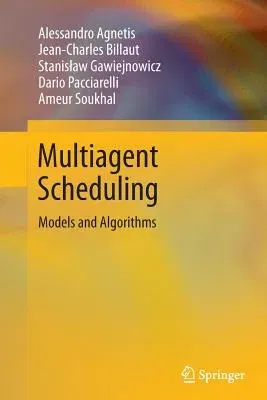Alessandro Agnetis
(Author)Multiagent Scheduling: Models and Algorithms (Softcover Reprint of the Original 1st 2014)Paperback - Softcover Reprint of the Original 1st 2014, 27 August 2016

Qty
1
Turbo
Ships in 2 - 3 days
In Stock
Free Delivery
Cash on Delivery
15 Days
Free Returns
Secure Checkout
Print Length
271 pages
Language
English
Publisher
Springer
Date Published
27 Aug 2016
ISBN-10
3662506351
ISBN-13
9783662506356
Description
Product Details
Book Edition:
Softcover Reprint of the Original 1st 2014
Book Format:
Paperback
Country of Origin:
NL
Date Published:
27 August 2016
Dimensions:
23.39 x
15.6 x
1.52 cm
Genre:
Science/Technology Aspects
ISBN-10:
3662506351
ISBN-13:
9783662506356
Language:
English
Location:
Berlin, Heidelberg
Pages:
271
Publisher:
Weight:
408.23 gm

